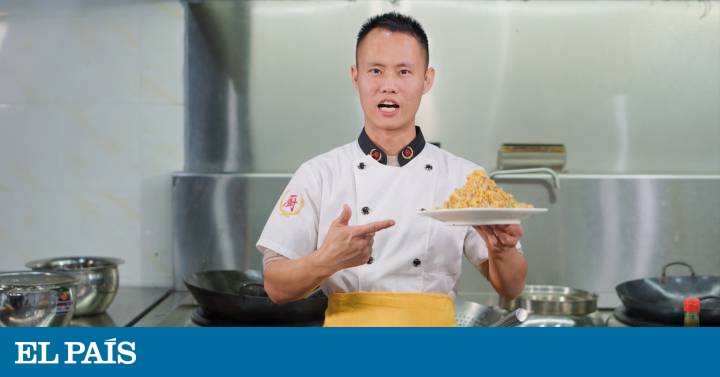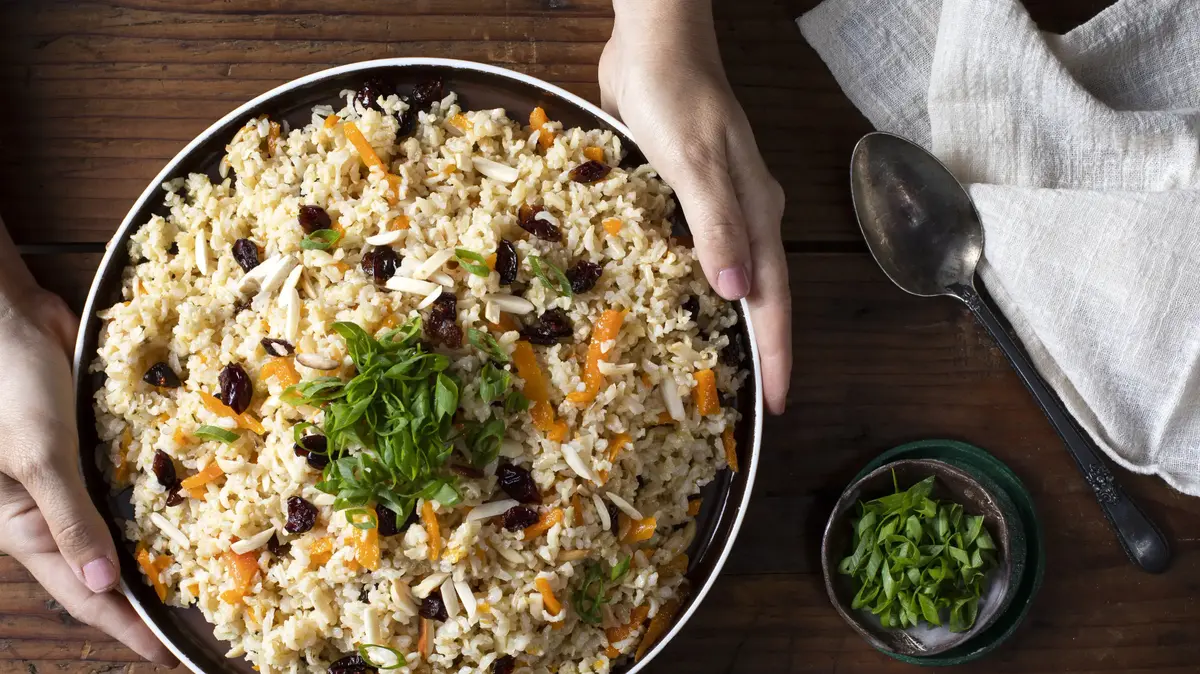Everything in China has political roots.
Even fried rice.
The last person to experience it firsthand has been the popular chef Wang Gang, who has unleashed a wave of protests on social networks after committing the slip of preparing this innocent dish on the wrong day.
Wang accumulates several million followers on his profiles on Weibo (a Chinese "Facebook"), Bilibili (a video website) and even YouTube, on the other side of the Great Digital Wall.
He shares a profession with Karlos Arguiñano, yes, but the similarities end there.
Wang is famous for his paucity.
No jokes or witticisms: cooking, nothing more.
As he wields the wok and knife with hypnotic mastery, he limits himself to commenting on what he does and giving advice for replicating it at home.
Wang, of course, would never make any political comments or get into a mess if he didn't need that vegetable, but in the suffocating scrutiny of the digital age that is still a trivial detail.
MORE INFORMATION
MORE POSTS FROM THIS BLOG
France honors six-year-old boy who helped fight Nazis
Cambridge denounces, 20 years after losing it, the possible theft of Darwin's 'tree of life'
The mystery of the monolith "from '2001" found in the middle of the Utah desert
In late October, Wang posted a video in which he taught how to cook Yangzhou-style fried rice.
A horde of Internet users reacted by taking the comments section, accusing him of
ruhua
, of "humiliating China", a term very helpful in the social networks of the Asian giant.
The reason?
At that time the memory of Mao Anying is commemorated, whose biography has as its fundamental element a plate of fried rice that changed the course of history.
Mao Anying was the first son of Mao Zedong, founder of the People's Republic of China.
His mother, Yang Kaihui, the communist leader's second wife, was executed by the Kuomintang in 1930 when the boy was eight years old.
Anying was educated in Moscow and, after receiving permission from Joseph Stalin, joined the ranks of the Red Army and served as an artillery officer in the First Belarusian Front.
He participated in the Battle of Berlin that ended World War II.
When his father's communist hosts prevailed in the Chinese civil war, the young soldier returned to his home country.
Just a year later, the Party decided to intervene in the Korean War in defense of the Kim Il-sung regime.
Anying then requested Peng Dehuai, supreme commander of the mobilized troops, to allow him to accompany him.
At first Peng declined his offer, fearing the consequences should something happen to the leader's son.
The latter reacted angrily when he learned: "Who has referred to him as the son of Mao?"
Peng reluctantly ended up appointing young Mao as his personal secretary and translator.
To protect his security, he assigned him to the army command, located in some old mines far from the front, which offered protection against air attacks from the United States and the UN.
A mysterious death
On the morning of November 25, 1950, four Douglas A-26 Invaders bombarded the area with napalm.
The attack ended the life of Anying, who the day before had turned 28.
The incident has a famous explanation, perhaps apocryphal, collected for the first time in the memoirs of General Yang Di, according to which the young man began to cook a plate of fried rice, violating military protocol and revealing his position to the enemy forces.
His body, almost completely charred, could only be recognized thanks to a wristwatch given as a personal gift by Stalin himself.
Peng - who would fall from grace years later - immediately informed the Central Military Commission, but Zhou Enlai, Mao's right hand man, ordered that no one tell the Grand Helmsman.
He would not find out what happened until months later, when he ordered the return of his firstborn.
Anying became a martyr and was buried, it is believed, in the Pyongyang cemetery as a war hero.
Had he returned alive, it is possible that the political evolution of the second world power would have been very different.
It might have become a hereditary communist regime in the style of precisely North Korea.
Of Mao's ten children - many more illegitimate - only four were boys.
The fourth, Mao Anhong, was left in the care of one of his uncles during the civil war and disappeared without a trace.
The third, Mao Anlong, died during the conflict in 1931. The second, Mao Anqing, lived until 2007, but his schizophrenia rendered him incapable of power.
Some citizens of the country, in fact, secretly celebrate what they call "Chinese Thanksgiving" every November 25, the anniversary of the event that could have prevented the continuation of a despotic personalist leadership.
To celebrate they eat, of course, a plate of fried rice.
Read more blog topics and follow us on Flipboard.










/cloudfront-eu-central-1.images.arcpublishing.com/prisa/2C5HI6YHNFHDLJSBNWHOIAS2AE.jpeg)




